
通過式噴淋清洗機:噴淋清洗和超聲波清洗哪個更強?
作者:創始人來源:http://www.ahfanglei.com/時間:2025-10-31
眾所周(zhōu)知,電子車間的(de)潔淨(jìng)度對產品的可(kě)靠性具(jù)有極其重(chóng)要的影響,保持高水平的潔淨度可以確保(bǎo)產品的品質和穩定性。關鍵電子零部件在製造過程避免受到外部汙染是至(zhì)關重要的。若電子(zǐ)零部件受到汙染,將增加故障和缺陷的風險,降低產品的可靠性(xìng)和(hé)壽命。因此(cǐ),清洗工藝成為了電子製造過程難(nán)以割舍(shě)的一(yī)個環節。在GB38508-2020《清洗劑揮發性有(yǒu)機化合物含量限值》中,將清洗劑分為三類,分別是水基清洗(xǐ)劑、有機溶劑清洗劑、半水(shuǐ)基(jī)清(qīng)洗劑。其中有機溶劑(jì)型清洗劑的主要清洗工藝為手工浸泡刷洗、超聲波清洗(非易燃(rán)易爆型有機溶劑清洗劑),以及汽相蒸汽清洗方式等(děng)。水基清洗劑與半(bàn)水基型清洗劑的主要應用工藝為超聲(shēng)清(qīng)洗和(hé)噴淋清洗,均為工業清洗中最為常見的清(qīng)洗方式,兩者的清洗原理以及應用(yòng)領域上(shàng)存有一些不同之(zhī)處,藉(jiè)由本文予以簡述。
As is well known, the cleanliness of electronic workshops has an extremely important impact on the reliability of products, and maintaining a high level of cleanliness can ensure the quality and stability of products. It is crucial to avoid external contamination during the manufacturing process of critical electronic components. If electronic components are contaminated, it will increase the risk of malfunctions and defects, and reduce the reliability and lifespan of the product. Therefore, the cleaning process has become an indispensable part of the electronic manufacturing process. In GB38508-2020 "Limits for volatile organic compound content of cleaning agents", cleaning agents are divided into three categories: water-based cleaning agents, organic solvent cleaning agents, and semi water-based cleaning agents. The main cleaning processes of organic solvent based cleaning agents include manual soaking and brushing, ultrasonic cleaning (non flammable and non explosive organic solvent cleaning agents), and vapor phase steam cleaning methods. The main application processes of water-based cleaning agents and semi water-based cleaning agents are ultrasonic cleaning and spray cleaning, both of which are the most common cleaning methods in industrial cleaning. There are some differences in the cleaning principles and application fields between the two, which will be briefly described in this article.
超聲清洗設備(bèi)的清洗機理
Cleaning mechanism of ultrasonic cleaning equipment
超聲波清洗方式(shì)則是利用超聲波的空化作用對工件表麵以及各種間隙內進行有效(xiào)的(de)清洗。工作原理是通過超聲波高(gāo)頻振(zhèn)動,在(zài)清洗劑內部瞬間形(xíng)成數以百萬的微小(xiǎo)氣泡,隨著大量氣泡的不斷的形成與破裂,產生強大(dà)的(de)衝擊力和渦流效應,撞擊(jī)工件表麵的汙染物,將汙染物從工件的表麵去除。
The ultrasonic cleaning method utilizes the cavitation effect of ultrasonic waves to effectively clean the surface of the workpiece and various gaps. The working principle is to use high-frequency ultrasonic vibration to instantly form millions of tiny bubbles inside the cleaning agent. With the continuous formation and rupture of a large number of bubbles, strong impact force and eddy current effect are generated, which impact the pollutants on the surface of the workpiece and remove them from the surface of the workpiece.
超聲清洗設備(來自網絡)
Ultrasonic cleaning equipment (from the internet)
超聲波清洗設備主要應用於清洗各種零部件、器具、工具、機器等物體,主(zhǔ)要的應用領域有汽車製造業中的發動機零部件、刹車片、輪轂的高精度的清洗,機械製(zhì)造業中的齒輪、軸承、泵(bèng)、閥門的油脂和汙垢清洗,電子製造業中的電子元器件、印刷電路板表麵的助焊劑殘留物和氧化(huà)物的去處以及食品加工業中的容器、工具、機器等需要高效、安全、衛生的清洗等。
Ultrasonic cleaning equipment is mainly used to clean various components, appliances, tools, machines, and other objects. Its main application areas include high-precision cleaning of engine parts, brake pads, and wheel hubs in the automotive manufacturing industry, cleaning of grease and dirt on gears, bearings, pumps, and valves in the mechanical manufacturing industry, removal of flux residues and oxides on the surface of electronic components and printed circuit boards in the electronic manufacturing industry, and efficient, safe, and hygienic cleaning of containers, tools, machines, etc. in the food processing industry.
影響超聲清洗效果(guǒ)的主要因素有以下:超聲波頻率(lǜ):超(chāo)聲波頻率對清洗效(xiào)果有很大影響,不同頻率的超聲波適用於不同類型的工件。低頻超聲波(bō)因(yīn)其強大(dà)的剪切力,適用於簡單工件表麵的清洗,而高頻超聲波適用於(yú)複(fù)雜表麵和深孔(kǒng)盲孔等狹小縫隙工件的高精密清(qīng)洗。
The main factors affecting the effectiveness of ultrasonic cleaning are as follows: Ultrasonic frequency: Ultrasonic frequency has a significant impact on the cleaning effect, and different frequencies of ultrasonic waves are suitable for different types of workpieces. Low frequency ultrasound is suitable for cleaning simple workpiece surfaces due to its strong shear force, while high-frequency ultrasound is suitable for high-precision cleaning of complex surfaces and narrow gap workpieces such as deep holes and blind holes.
超聲波功率密度(dù):超聲波(bō)功率(lǜ)密(mì)度也會影響清洗效果。對於難以清洗(xǐ)的工件,宜采用(yòng)大功(gōng)率密度,而對於(yú)精(jīng)密工件,宜采用小(xiǎo)功率密度。功率密度越高,清(qīng)洗效(xiào)果越好,清洗速度也越快。過高的功率(lǜ)也會對易損零件、敏感器(qì)件造成(chéng)潛在的負麵影響。
Ultrasonic power density: Ultrasonic power density can also affect the cleaning effect. For workpieces that are difficult to clean, high power density is recommended, while for precision workpieces, low power density is recommended. The higher the power density, the better the cleaning effect and the faster the cleaning speed. Excessive power can also have potential negative effects on vulnerable parts and sensitive components.
清洗劑的種類:針對不同的工件應當需要選擇不同的清洗(xǐ)劑(jì)類型(xíng),複雜(zá)難以去除的重汙染物應當提高相應(yīng)的清洗劑濃度或選用KB值高的有機溶劑型清洗劑。根據清洗(xǐ)劑種類的不同(tóng),選擇不同的參數以達到最佳的清洗效果。
Types of cleaning agents: Different types of cleaning agents should be selected for different workpieces. For complex and difficult to remove heavy pollutants, the corresponding cleaning agent concentration should be increased or organic solvent based cleaning agents with high KB values should be selected. Select different parameters based on the type of cleaning agent to achieve the best cleaning effect.
清洗溫度:超聲波(bō)在一定溫度範圍內(nèi)發揮最佳效果。溫度(dù)越(yuè)高,有利於汙染物的分解與剝(bāo)離,但當溫度(dù)過高時(shí),反而會降低超聲波的清洗效果。
Cleaning temperature: Ultrasonic waves have the best effect within a certain temperature range. The higher the temperature, the more conducive it is to the decomposition and stripping of pollutants, but when the temperature is too high, it will actually reduce the cleaning effect of ultrasonic waves.
清洗時間:一般情況下延長清洗時間,清洗效果越好。但針對於敏感複雜的工件時,需合理的控(kòng)製清洗時間防止對工件表麵或內部造成損壞。以(yǐ)上各種因(yīn)素綜合起來,影響超聲清(qīng)洗設(shè)備的清洗效果。因此,在使用超聲清洗設備時,需要根據具體情況選擇合適的超聲波頻率、功率密(mì)度、清洗劑類(lèi)型和濃(nóng)度以及清(qīng)洗溫度(dù),並合理的控製清洗時間,以(yǐ)獲得最佳的清洗效果。
Cleaning time: Generally speaking, extending the cleaning time results in better cleaning effectiveness. However, when dealing with sensitive and complex workpieces, it is necessary to control the cleaning time reasonably to prevent damage to the surface or interior of the workpiece. The combination of the above factors affects the cleaning effect of ultrasonic cleaning equipment. Therefore, when using ultrasonic cleaning equipment, it is necessary to choose the appropriate ultrasonic frequency, power density, type and concentration of cleaning agent, and cleaning temperature according to the specific situation, and control the cleaning time reasonably to achieve the best cleaning effect.
噴淋清洗設備的清洗(xǐ)機理
Cleaning mechanism of spray cleaning equipment
噴淋清洗過程(chéng)主要借助於噴淋清洗設備,將水基或半水基型清洗劑高壓噴射到工件表(biǎo)麵進行清洗。其(qí)工作原理是通過高壓泵將清洗劑加壓到(dào)一定程度,通過專業的噴嘴將清洗劑噴灑到工件表麵,借助於高壓衝擊力,結合清洗劑的潤濕(shī)、溶解、乳化(huà)、皂化等方式(shì)將汙染物從工件表麵或(huò)間隙中去除剝離,從而達到(dào)高效的清洗效果。
The spray cleaning process mainly relies on spray cleaning equipment to high-pressure spray water-based or semi water-based cleaning agents onto the surface of the workpiece for cleaning. Its working principle is to pressurize the cleaning agent to a certain degree through a high-pressure pump, and spray the cleaning agent onto the surface of the workpiece through a professional nozzle. With the help of high-pressure impact force, combined with the wetting, dissolution, emulsification, saponification and other methods of the cleaning agent, pollutants are removed and peeled off from the surface or gaps of the workpiece, thus achieving efficient cleaning effect.
噴淋清洗設備
Spray cleaning equipment
噴淋清洗設備主要應用於工業製造領域,常用於去除機(jī)械設備、工(gōng)業零件(jiàn)、管道表麵的油脂和其他(tā)汙垢等,在電子製造行業,印刷電路板(PCB)生(shēng)產過程PCB表麵上的化學物質和助焊劑殘留,食(shí)品加工和(hé)醫藥領域的加工設備、管道和其他工業零件等(děng)各種行業(yè)。
Spray cleaning equipment is mainly used in the industrial manufacturing field, commonly used to remove grease and other dirt from mechanical equipment, industrial parts, and pipeline surfaces. In the electronic manufacturing industry, chemical substances and flux residues on the surface of printed circuit boards (PCBs) during the production process, as well as in various industries such as food processing and pharmaceutical processing equipment, pipelines, and other industrial parts.
影響噴(pēn)淋清洗效果的主要因素有(yǒu)以下:
The main factors affecting the effectiveness of spray cleaning are as follows:
清(qīng)洗設備的壓(yā)力:清洗過程中噴淋(lín)壓力會直接影響清洗效果,噴淋壓力越大,工件表麵的衝(chōng)擊力和剪切力越大,清洗效(xiào)果越好,但對於(yú)柔性材料或(huò)敏感材料需控製噴淋壓力上(shàng)限,防止對材料表麵或工件可靠性造成損傷。
Pressure of cleaning equipment: The spray pressure during the cleaning process will directly affect the cleaning effect. The higher the spray pressure, the greater the impact and shear forces on the surface of the workpiece, and the better the cleaning effect. However, for flexible or sensitive materials, the upper limit of the spray pressure should be controlled to prevent damage to the material surface or workpiece reliability.
噴淋角度:正確的噴淋角度和(hé)位置可以確(què)保清(qīng)洗劑均勻無死角(jiǎo)的(de)覆蓋到工件的表麵,從而達到最佳(jiā)的清洗效果。清洗劑的選擇:清洗(xǐ)劑的效果與清洗劑的(de)濃度密切有(yǒu)關。過低(dī)的濃度可導致無法有效的清除汙染物,無法達到預期的清洗(xǐ)效果;而(ér)過(guò)高的濃(nóng)度則可能會導致清洗劑的殘留,從而產生大量漂洗廢水。TECHSPRA特可銳,可滿足您(nín)對清洗劑的各種嚴苛的要求,91污的(de)實驗室(shì)和技術(shù)人員能夠為您提供試驗和驗證服務,ITW為您提供(gòng)綜(zōng)合解(jiě)決方案。
Spray angle: The correct spray angle and position can ensure that the cleaning agent covers the surface of the workpiece evenly without dead corners, thereby achieving the best cleaning effect. The selection of cleaning agents: The effectiveness of cleaning agents is closely related to their concentration. Low concentration can lead to ineffective removal of pollutants and inability to achieve the expected cleaning effect; Excessive concentration may lead to residual cleaning agents, resulting in a large amount of rinsing wastewater. TECHSPRA can meet your various stringent requirements for cleaning agents. Our laboratory and technical personnel can provide you with testing and validation services, while ITW provides you with comprehensive solutions.
溫度和時間(jiān):在清洗過(guò)程中,清洗溫度的控製(zhì)會影響(xiǎng)清洗效果,同時也會影響清洗劑的消耗量和(hé)設備的使用壽命。清洗時間的長短也會影響清洗效果(guǒ),清洗(xǐ)時間(jiān)過短會導致清洗不徹底,而過長則會造成資(zī)源的浪費。
Temperature and time: During the cleaning process, controlling the cleaning temperature can affect the cleaning effect, as well as the consumption of cleaning agents and the service life of equipment. The length of cleaning time can also affect the cleaning effect. A too short cleaning time can lead to incomplete cleaning, while a too long cleaning time can cause waste of resources. ???
噴淋設備的定期保養:定期(qī)對設備進行維護和保養,檢查管道、噴嘴的清潔度(dù)可確保(bǎo)設(shè)備的清洗效果,同時也可以延長設備的使用壽(shòu)命。總之,噴淋清洗設備的主要是通過高(gāo)壓水流的衝擊力將(jiāng)物體(tǐ)表麵的汙垢剝離,達到清洗的效果。在清洗過程中,還需要控製係統對設備進行精確控製,以保證清洗效果和設備的安全性。
Regular maintenance of sprinkler equipment: Regular maintenance and upkeep of the equipment, checking the cleanliness of pipelines and nozzles, can ensure the cleaning effect of the equipment and also extend its service life. In short, the main function of spray cleaning equipment is to remove dirt from the surface of objects through the impact force of high-pressure water flow, achieving the cleaning effect. During the cleaning process, it is also necessary to control the equipment accurately by the control system to ensure the cleaning effect and the safety of the equipment.
兩(liǎng)種清洗工藝的對比
Comparison of Two Cleaning Processes
超(chāo)聲清洗(xǐ)是(shì)利用超聲波的空化作用和衝擊力來清(qīng)洗物體表(biǎo)麵和微小孔隙中的汙垢。它廣泛應用於工(gōng)業領域(yù),如電子元器件、醫療器械、眼鏡、珠寶等的清(qīng)洗。噴淋清(qīng)洗是通過噴淋管將清洗劑高壓均勻噴灑(sǎ)在物體表麵,利用(yòng)噴灑的高壓水流衝洗汙(wū)垢(gòu)。它常用於工業生產線上的清洗工藝,如汽車零部件、機(jī)械(xiè)設備等的清洗。超聲清洗和噴淋清洗在清洗方式上有所不同。超聲清洗(xǐ)利用超聲波的物理(lǐ)效應來清洗,可以清洗微小孔隙和複雜形狀的物體;而噴淋清(qīng)洗則是通過高壓水流的衝洗作(zuò)用(yòng)來清洗物體表麵。
Ultrasonic cleaning is the use of the cavitation and impact force of ultrasound to clean dirt from the surface and tiny pores of objects. It is widely used in industrial fields, such as cleaning electronic components, medical equipment, glasses, jewelry, etc. Spray cleaning is the process of uniformly spraying cleaning agents at high pressure onto the surface of objects through a spray pipe, and using the sprayed high-pressure water flow to flush away dirt. It is commonly used in cleaning processes on industrial production lines, such as cleaning automotive parts, mechanical equipment, etc. Ultrasonic cleaning and spray cleaning have different cleaning methods. Ultrasonic cleaning utilizes the physical effects of ultrasound to clean small pores and complex shaped objects; Spray cleaning, on the other hand, uses the flushing effect of high-pressure water flow to clean the surface of objects.
根據(jù)具體的清(qīng)洗需求和物體特性選擇合適的清洗工藝,如需要清(qīng)洗微小孔隙和複雜形狀的物體,超聲清洗可能更適合;如果需(xū)要快速清洗平麵物體,噴淋清洗可能更(gèng)適合。
Select the appropriate cleaning process based on specific cleaning needs and object characteristics. For cleaning small pores and complex shaped objects, ultrasonic cleaning may be more suitable; If you need to quickly clean flat objects, spray cleaning may be more suitable.
本(běn)文由 通過式噴(pēn)淋清洗機 友(yǒu)情奉獻.更多有關的知識請點擊 http://www.ahfanglei.com/ 真誠的態度(dù).為您提供為全麵的服務(wù).更多有關的知識91污將會陸續向大家奉獻.敬請(qǐng)期(qī)待.
This article is a friendly contribution from the through type spray cleaning machine For more related knowledge, please click http://www.ahfanglei.com/ Sincere attitude To provide you with comprehensive services We will gradually contribute more relevant knowledge to everyone Coming soon.
推(tuī)薦產品
推薦文章
 公司:濟南科爾超聲波設備有限公司
公司:濟南科爾超聲波設備有限公司  熱線:18663767799
熱線:18663767799 地址:山東省濟南(nán)市濟陽(yáng)區創業路(lù)與啟航街交叉口南40米
地址:山東省濟南(nán)市濟陽(yáng)區創業路(lù)與啟航街交叉口南40米




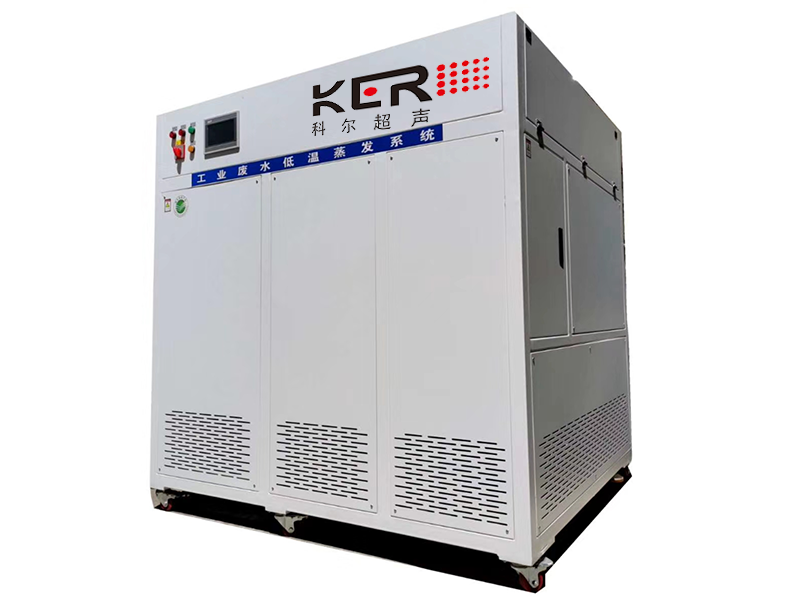
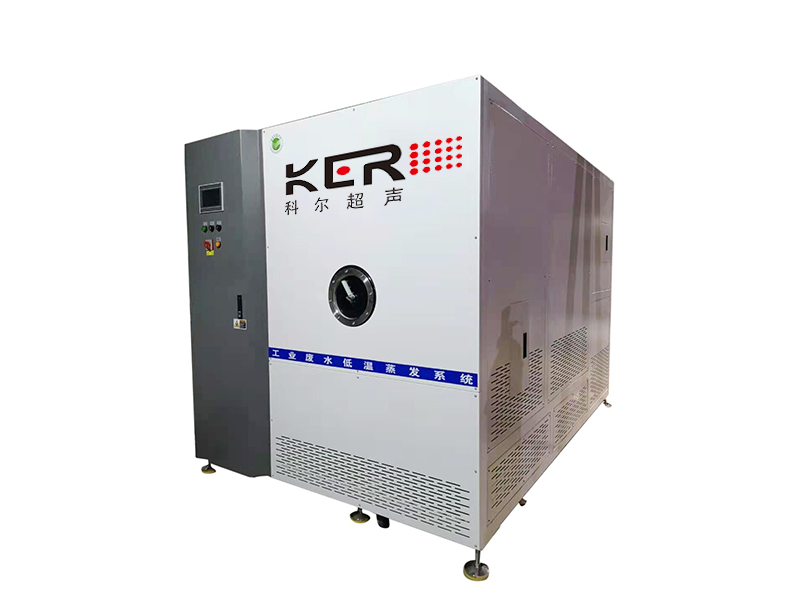
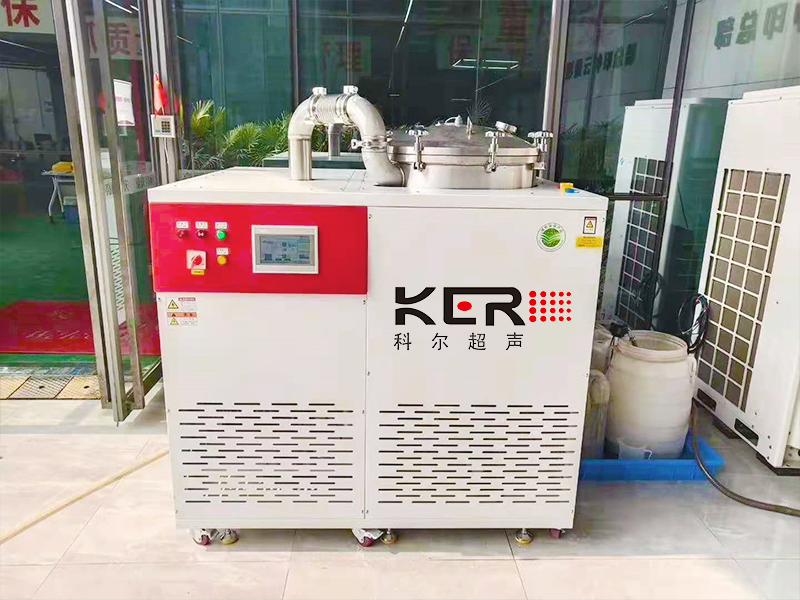
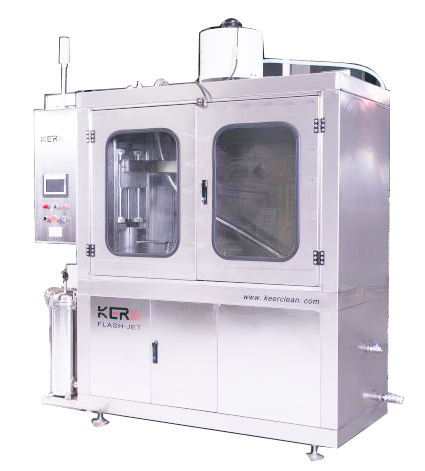
 新聞(wén)資訊
新聞(wén)資訊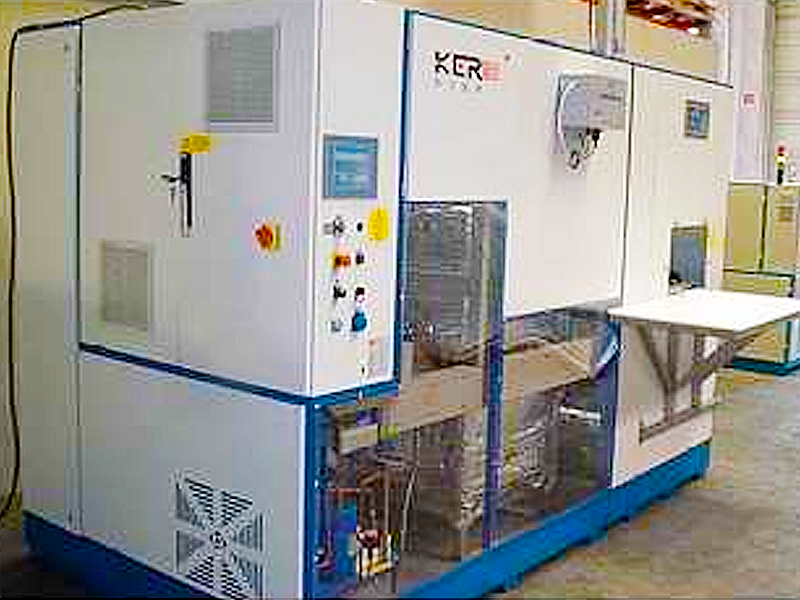
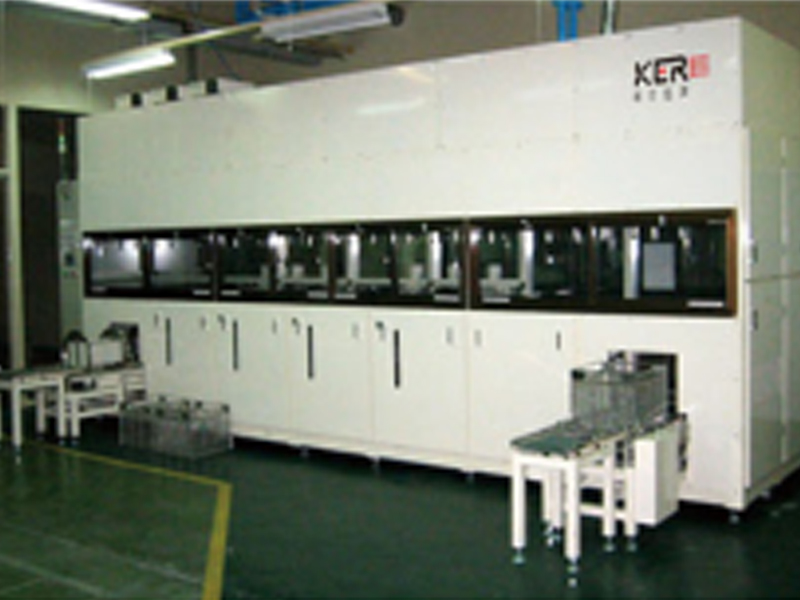
 聯係91污
聯係91污
 谘詢電話:18663767799
谘詢電話:18663767799 E-MAIL:jnkergs@163.com
E-MAIL:jnkergs@163.com 地址:山東省濟南市濟陽區創(chuàng)業路與啟航街(jiē)交叉口南40米
地址:山東省濟南市濟陽區創(chuàng)業路與啟航街(jiē)交叉口南40米 魯公網安備 37011202001385號(hào)
魯公網安備 37011202001385號(hào)
